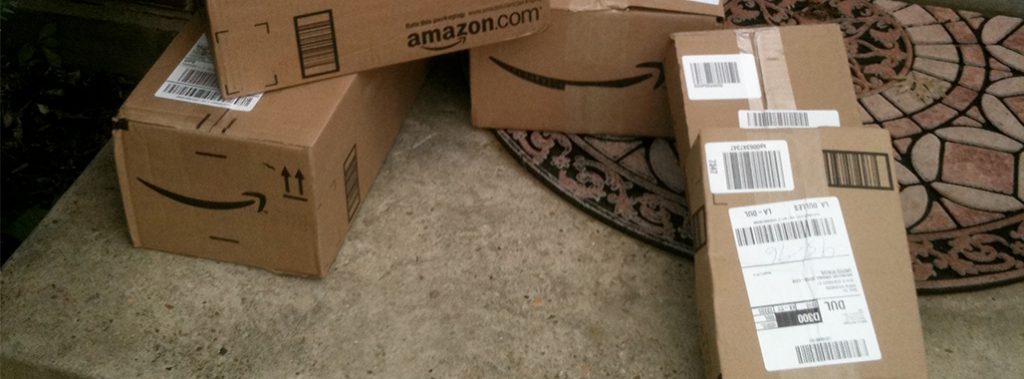For those who want to shop online without worrying about their packages getting stolen or damaged while on the porch, Amazon has just solved your problem. Amazon Key is a new service that allows deliverymen to temporarily gain access to your house so that your packages can be stored in the safety of your home without you lifting a finger, or even being present. Technology saves the day again – or does it?
According to Amazon’s website, the service uses a smart-lock connected to the internet to allow deliverymen temporary, camera-monitored access to a consumer’s house so that packages can be left inside, preventing theft or damage from rain or snow. Real-time notifications are sent to the homeowner, notifying them before, during and after the delivery, which can be watched in real time if they so choose.
While online shopaholics may rejoice, many Americans are wary of this new service. A survey by the Morning Consult found that 68 percent of adults in the United States are uncomfortable with letting a stranger deliver packages inside their home. Additionally, Amazon said that home alarm systems are not compatible with the smart-locks and would have to be turned off on the day of delivery.
The advent of in-home technological assistant Alexa allowed Amazon into homes virtually, but now, Amazon is coming through the front door. People are giving Amazon access to their shopping habits, informational searches and, now, the security of their homes. Amazon is holding the keys – no pun intended – to a wealth of information that gives it a great deal of power and influence over its consumers.
This is cause for some concern. Amazon is already king of the online shopping world, and Amazon Key gives it even more virtual sway – maybe too much.
No matter how many measures are put in place, the security risks for this service are numerous. Smart-locks have the potential to be hacked, especially if security systems must be turned off for the delivery. Pets may escape when the deliveryman opens the door to drop off packages, and the overall privacy of consumers will continue to diminish.
The home is still considered a private place – one of the few left in today’s information-driven world. When it becomes commonplace for strangers to enter your home on a regular basis, your personal privacy is threatened. Privacy and security should not be expendable just for the safety of a few online impulse buys.
Luke Schoenfelder, founder and CEO of secure access systems company Latch, compared in-home services with other technology-based companies such as Uber and Airbnb. Schoenfelder believes it will just take time for shoppers to grow accustomed to this new form of delivery.
However, while with Uber, the consumer is temporarily intruding on the private space of an employee. With Amazon Key, the employee is the one accessing the consumer’s house while the consumer is not present. Although video footage is a safeguard against theft or unwanted intrusion, the prevalence of unknown people entering a person’s home, even temporarily, is unsettling. People want to know what goes on in their homes, but it seems that, even with additional security measures, Amazon is taking both control and privacy away.
It is likely that Amazon Key will become a staple in many homes in the next few years, but this progressive step is unnerving. People tend to accept the advances in technology instantaneously, but Amazon Key should be approached with caution.
For the casual online shopper, Amazon Key provides a measure of convenience while adding another point of access, and, perhaps, additional weakness, to the security of your home. Unless you are frequently ordering large numbers of expensive packages and are rarely home, the benefits of the Amazon Key service do not seem to outweigh the downsides. Your front door is the last barrier between public and private – it should not be open to just anybody.
